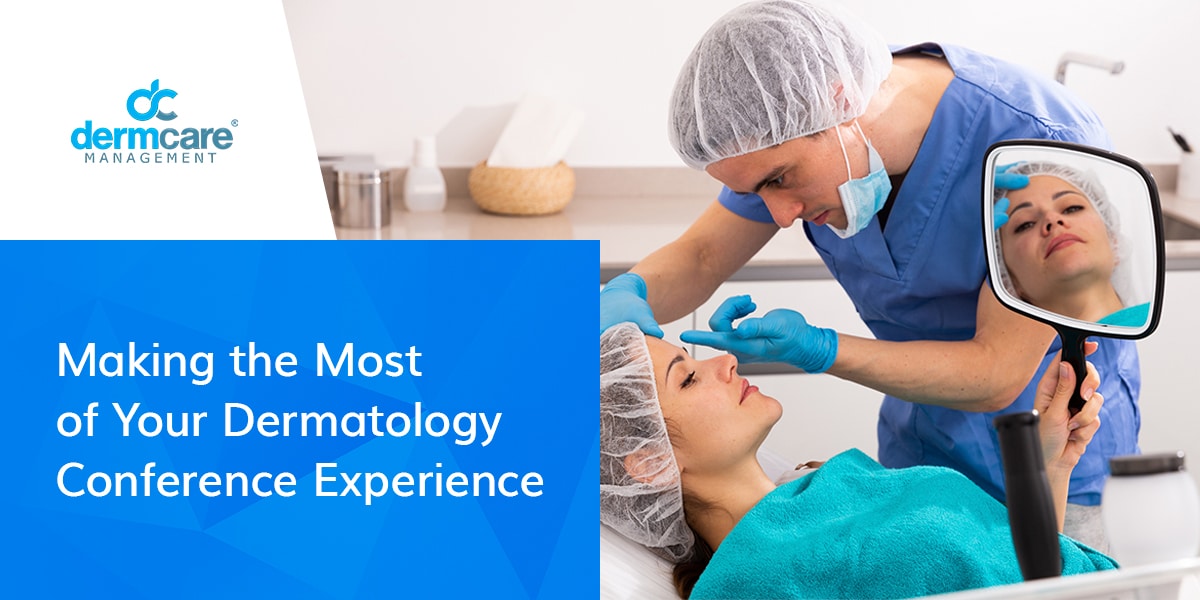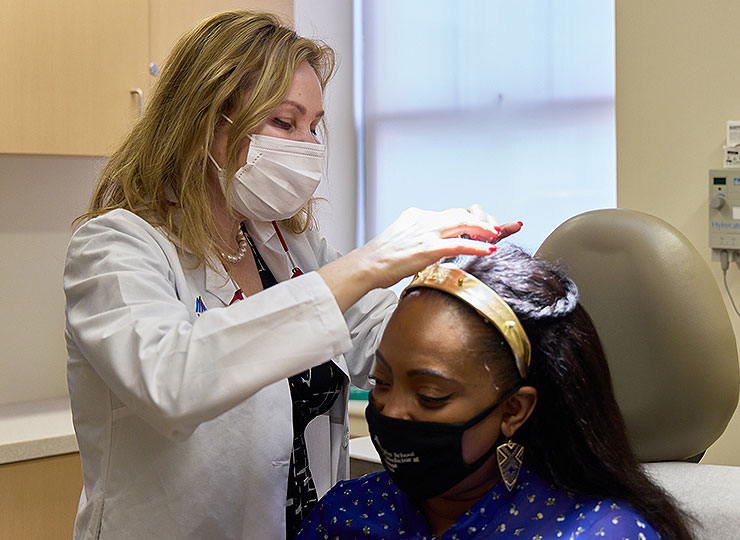Hey there, future skin experts! If you're diving into the world of dermatology as a resident in 2024, you're in for an exciting journey. Real world dermatology for residents is all about bridging the gap between textbook knowledge and practical application. It’s not just about diagnosing rashes or prescribing creams; it’s about understanding how to handle real-life scenarios that textbooks don’t always prepare you for. Let’s face it, the real world is messy, unpredictable, and sometimes chaotic. And trust me, that’s where the magic happens.
This year, the field of dermatology is evolving faster than ever. With advancements in technology, new treatments, and a growing focus on patient-centered care, residents have more tools at their disposal. But how do you navigate the complexities of real-world dermatology? How do you ensure that your patients receive the best possible care while balancing the demands of residency? That’s what we’ll explore in this article.
So grab a coffee, get comfy, and let’s dive into the nitty-gritty of real-world dermatology for residents in 2024. Whether you’re a newbie or already knee-deep in the trenches, this guide will give you the insights and strategies you need to thrive in your career. Let’s get started!
Read also:Nkotb Concert Tickets Your Ultimate Guide To Secure The Best Seats
Table of Contents
- Introduction to Real World Dermatology
- Key Challenges in Dermatology for Residents
- Developing Essential Clinical Skills
- Mastering Patient Communication
- Emerging Trends in Dermatology 2024
- Understanding Diagnostic Tools
- Exploring Treatment Options
- Research Opportunities in Dermatology
- Achieving Work-Life Balance
- Future Prospects for Dermatology Residents
Introduction to Real World Dermatology
Dermatology might seem glamorous on the surface, but the reality is that it’s a demanding and intricate field. Real world dermatology for residents 2024 is all about stepping out of the classroom and into the clinic. It’s where you’ll encounter patients with complex conditions, diverse backgrounds, and unique needs. The key to success lies in your ability to adapt, learn, and grow.
As a resident, you’ll quickly realize that textbooks only scratch the surface. The real world is full of variables that you won’t find in any medical journal. From managing patient expectations to dealing with limited resources, there’s a lot to wrap your head around. But don’t worry, you’re not alone. This guide will walk you through the essentials of real-world dermatology and help you navigate the challenges ahead.
Why Real-World Experience Matters
Let’s be real, theoretical knowledge is important, but it’s only half the battle. Real-world experience is what separates the good dermatologists from the great ones. It teaches you how to think on your feet, make informed decisions, and provide personalized care. Whether you’re treating a stubborn acne case or managing a chronic skin condition, real-world experience will sharpen your skills and deepen your understanding of the field.
Key Challenges in Dermatology for Residents
Being a dermatology resident in 2024 comes with its own set of challenges. From juggling clinical duties to staying up-to-date with the latest research, it’s a lot to handle. Here are some of the key challenges you might face:
- Time Management: Balancing clinical rotations, research projects, and personal life can be overwhelming.
- Learning Curve: Dermatology is a vast field, and there’s always something new to learn. Keeping up with the latest trends and treatments can be a challenge.
- Patient Complexity: Not all patients fit neatly into textbook categories. You’ll encounter cases that require creative thinking and problem-solving.
- Emotional Toll: Dealing with patients who are anxious, frustrated, or in pain can take a toll on your mental health. It’s important to find ways to manage stress and stay grounded.
How to Overcome These Challenges
The good news is that these challenges are not insurmountable. By developing a strong support system, prioritizing self-care, and staying curious, you can overcome any obstacle. Remember, every challenge is an opportunity to learn and grow.
Developing Essential Clinical Skills
As a dermatology resident, your clinical skills are your bread and butter. From conducting thorough skin exams to interpreting biopsy results, you need to be proficient in a wide range of skills. Here are some essential clinical skills you should focus on:
Read also:Lauren London Dating History A Comprehensive Look At Her Relationships
- Skin Examination: Learn how to perform a comprehensive skin exam, paying attention to subtle details that might go unnoticed.
- Biopsy Techniques: Mastering biopsy techniques is crucial for accurate diagnosis. Practice makes perfect, so don’t be afraid to ask for feedback.
- Wound Care: Understanding how to manage wounds and promote healing is an important part of dermatology.
Tips for Improving Clinical Skills
Improving your clinical skills takes time and practice. Seek out mentors who can guide you, attend workshops and conferences, and never stop learning. Remember, every patient interaction is an opportunity to refine your skills.
Mastering Patient Communication
Communication is key in dermatology. Being able to explain complex medical concepts in simple terms is a skill that every resident should develop. Here are some tips for mastering patient communication:
- Active Listening: Pay attention to what your patients are saying. Sometimes, the answers you need are hidden in their words.
- Empathy: Show compassion and understanding. Patients are more likely to trust you if they feel heard and understood.
- Clarity: Avoid using jargon and technical terms that might confuse your patients. Keep your explanations clear and concise.
Why Communication Matters
Effective communication builds trust and improves patient outcomes. When patients feel comfortable and informed, they’re more likely to follow your treatment plan and achieve better results. It’s a win-win for everyone involved.
Emerging Trends in Dermatology 2024
The field of dermatology is constantly evolving, and 2024 is no exception. Here are some emerging trends you should keep an eye on:
- Telemedicine: With the rise of remote consultations, telemedicine is becoming an integral part of dermatology practice.
- AI and Machine Learning: These technologies are revolutionizing the way we diagnose and treat skin conditions.
- Personalized Medicine: Tailoring treatments to individual patients based on their genetic makeup and lifestyle factors.
How These Trends Impact Residents
As a resident, staying informed about these trends will give you a competitive edge. Embrace new technologies, attend conferences, and collaborate with experts in the field. The future of dermatology is exciting, and you’re right in the middle of it.
Understanding Diagnostic Tools
Diagnostic tools are an essential part of dermatology practice. From dermoscopy to skin biopsies, these tools help you make accurate diagnoses and develop effective treatment plans. Here’s a closer look at some of the most commonly used diagnostic tools:
- Dermoscopy: A non-invasive tool that allows you to examine skin lesions in detail.
- Biopsy: A procedure used to remove a small sample of skin for further analysis.
- Imaging: Techniques like ultrasound and MRI are increasingly being used to evaluate skin conditions.
Choosing the Right Tool
Selecting the right diagnostic tool depends on the patient’s condition and your clinical judgment. Always consider the pros and cons of each option and choose the one that provides the most accurate results.
Exploring Treatment Options
Treatment options in dermatology are as diverse as the conditions themselves. From topical creams to laser therapy, there’s a wide range of treatments available. Here’s a breakdown of some common treatment options:
- Topical Treatments: Creams, ointments, and gels that are applied directly to the skin.
- Oral Medications: Pills and capsules that work from the inside out.
- Procedures: Techniques like laser therapy, cryotherapy, and chemical peels.
Tailoring Treatments to Individual Patients
Every patient is unique, and so should their treatment plan. Consider factors like age, lifestyle, and medical history when developing a treatment plan. Personalized care leads to better outcomes and happier patients.
Research Opportunities in Dermatology
Research is a vital part of dermatology, and there are plenty of opportunities for residents to get involved. From clinical trials to observational studies, research allows you to contribute to the advancement of the field. Here’s how you can get started:
- Collaborate with Experts: Work with experienced researchers to gain insights and guidance.
- Attend Conferences: Networking events and conferences are great places to learn about the latest research and connect with peers.
- Participate in Studies: Get hands-on experience by participating in research studies and clinical trials.
Why Research Matters
Research drives innovation and improves patient care. By contributing to the body of knowledge in dermatology, you’re helping to shape the future of the field. It’s a rewarding experience that will benefit both you and your patients.
Achieving Work-Life Balance
Residency is a demanding time, and it’s easy to get caught up in the whirlwind of clinical duties and research projects. But don’t forget to take care of yourself. Achieving work-life balance is crucial for your mental and physical well-being. Here are some tips for maintaining balance:
- Set Boundaries: Learn to say no when necessary and prioritize your personal time.
- Practice Self-Care: Engage in activities that bring you joy and relaxation, whether it’s yoga, reading, or spending time with loved ones.
- Seek Support: Don’t hesitate to reach out to friends, family, or colleagues when you need help.
Why Balance is Important
A well-rested and balanced resident is a more effective and compassionate doctor. Taking care of yourself ensures that you can provide the best possible care to your patients. Remember, you can’t pour from an empty cup.
Future Prospects for Dermatology Residents
The future of dermatology is bright, and there are plenty of opportunities for residents to thrive. With advancements in technology, personalized medicine, and patient-centered care, the field is evolving in exciting ways. Here’s what the future holds:
- Innovative Treatments: New treatments and therapies are on the horizon, offering hope for patients with chronic conditions.
- Global Collaboration: Dermatologists around the world are working together to tackle global health challenges.
- Increased Demand: The demand for dermatologists is growing, providing ample opportunities for career growth and development.
Preparing for the Future
To prepare for the future, stay curious, adaptable, and open to new ideas. Embrace change, seek out mentorship, and never stop learning. The future is yours for the taking!
Kesimpulan
Real world dermatology for residents 2024 is a journey of discovery, growth, and transformation. From mastering clinical skills to staying informed about emerging trends, there’s always something new to learn. Remember, the key to success lies in your ability to adapt, learn, and provide personalized care to your patients.
So, what’s next? Take action! Start honing your skills, explore research opportunities, and prioritize your well-being. And don’t forget to share this article with your fellow residents. Together, we can shape the future of dermat


